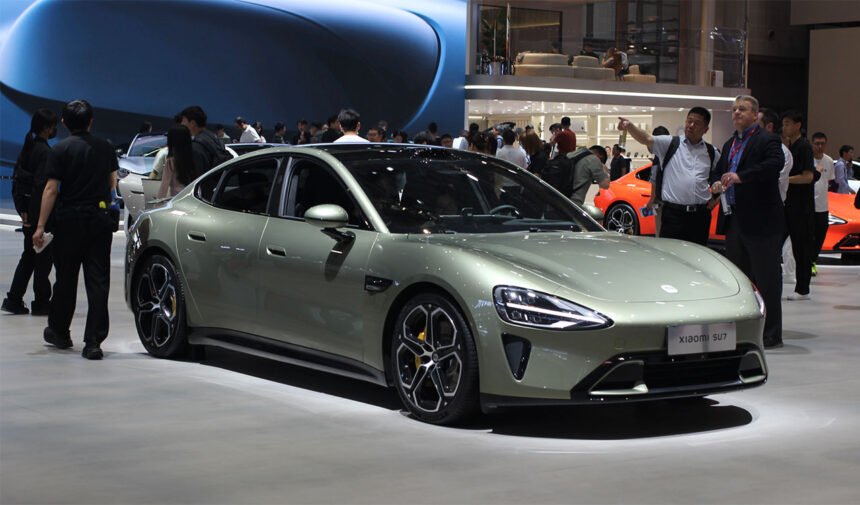Nvidia’s CEO Jensen Huang recently expressed his admiration for Xiaomi’s cars and the overall Chinese electric vehicle (EV) industry during a visit to China for an important event. According to a report by local media outlet National Business Daily, Huang mentioned that he would be interested in purchasing a Xiaomi car.
The US chip giant has had a close collaboration with Xiaomi in various areas, as Huang shared after attending the opening ceremony of China’s third China International Supply Chain Expo. He highlighted the remarkable progress of China’s EV industry over the past five years, labeling it as one of the most surprising global developments.
During his speech at the expo’s opening ceremony, delivered in Chinese, Huang commended China’s supply chain ecosystem as a “miracle.” He noted that artificial intelligence (AI) plays a pivotal role in powering China’s prominent platforms like Tencent’s WeChat, Alibaba’s Taobao, and ByteDance’s Douyin. Moreover, he emphasized that AI also drives Xiaomi’s autonomous driving technology and smartphones.
Despite being a newcomer in China’s EV sector, Xiaomi has achieved significant success. The company’s SU7 series has seen monthly deliveries surpassing 20,000 units for nine consecutive months. Recently, Xiaomi introduced its first SUV model, the YU7, which garnered 200,000 firm orders within the first three minutes of its launch.
Nvidia’s Orin chip powers the smart driving system in Xiaomi’s SU7 series, while the latest Thor chip is utilized in the YU7 model. Although many Chinese EV manufacturers currently opt for Nvidia’s chips for their smart driving systems, some companies are gradually transitioning to developing their in-house solutions. Notably, players like Nio and Xpeng, which initially relied solely on Nvidia’s autonomous driving chips, have started integrating their own chips into mass-produced vehicles.
Xiaomi has also ventured into developing its in-house Xring O1 chip, which is currently used in smartphones and tablets but has not been employed in its EV models yet. Additionally, Xiaomi’s president recently showcased an SU7 Ultra with a German license plate, highlighting it as the company’s first experimental vehicle registered in Europe.
The continuous advancements and innovations within China’s EV industry, along with the integration of AI technology by key players like Xiaomi and Nvidia, underscore the ongoing evolution and growth of the electric vehicle sector in the region.







